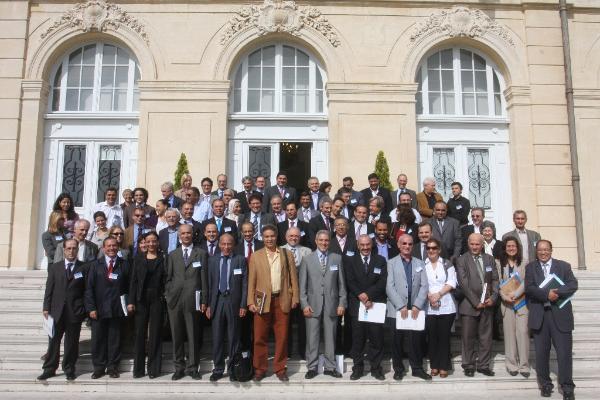
The European Investment Bank (EIB), the bank of the European Union, is holding a seminar on 8 and 9 October in Marseille on the rehabilitation of historic city centres in the Mediterranean. Hosted by Jean-Claude Gaudin, the Mayor of Marseille, Shehadeh Abu Hdaib, Jordan’s Minister of Municipal Affairs, and EIB Vice-President Philippe de Fontaine Vive, this seminar will bring together more than 150 elected officials, experts and representatives of the private sector to review the progress of the Medinas 2030 initiative launched by the EIB at the Venice Architecture Biennale in 2008.
Aimed at examining the problems surrounding urban regeneration, an exhibition on the rehabilitation of the medinas will be open to the public from 5 to 20 October in the Alcazar Library. Designed as a cultural trip through a selection of ancient Mediterranean cities that have taken action to preserve their heritage, this exhibition highlights the variety and complexity of the different social, economic and historical measures adopted.
The EIB sets out a strategic and sustainable vision of the medinas
The historic centres of southern and eastern Mediterranean cities play a vital role in preserving the cultural and social capital of Mediterranean countries. However, these centres have been marginalised due to the deterioration of their infrastructure and the emergence of new urban hierarchies. They are undergoing irreversible changes that significantly alter their role.
It is therefore imperative to develop a comprehensive and an integrated approach to the rehabilitation of the medinas with the implementation of long-term investment. This seminar will be the starting point of a far-reaching debate destined to lead to the implementation of a concerted approach, especially by the international financing and cooperation institutions, supporting the revitalization of historic urban centres. This initiative will be housed at the Marseille Centre for Mediterranean Integration (MCMI), which will be inaugurated on 9 October 2009.
FEMIP, the Facility for Euro-Mediterranean Investment and Partnership, is the European Investment Bank’s financial arm for the Mediterranean region. Its remit is to promote the development of nine countries: Algeria, Egypt, Israel, Jordan, Lebanon, Morocco, Syria, Tunisia and Gaza/West Bank. Its two investment priorities are support for the private sector, the driving force of sustainable growth, and the creation of an investment-friendly environment based on efficient infrastructure and appropriate banking systems. FEMIP has established itself as the main financial partner of the Mediterranean region, with more than EUR 8.5 billion invested since 2002. It also encourages dialogue between the two shores of the Mediterranean, at the institutional level but also with the representatives of the private sector and civil society. Through its Trust Fund, it carries out studies on the ground aimed at better understanding the Euro-Mediterranean challenges.
The EIB’s urban development financing know-how
The EIB has built up acknowledged expertise in urban development financing throughout the European Union. It has especially helped to finance the rehabilitation of historic city centres in places such as Granada.
In the southern and eastern Mediterranean, FEMIP supports the urban sector by financing waste management, water and sanitation, exclusive lane transport and social housing projects. In Morocco, for instance, the EIB is helping to improve the living conditions of households by assisting the demolition of shantytowns and rehabilitation of insalubrious districts. It is also financing, in support of the contracting authorities, a study on the rehabilitation of the medinas. The EIB is likewise providing technical assistance for urban development schemes in Jordan, Tunisia and Syria.

Photographer: EIB ©To be defined
Download original

Photographer: EIB ©To be defined
Download original

Photographer: EIB ©To be defined
Download original